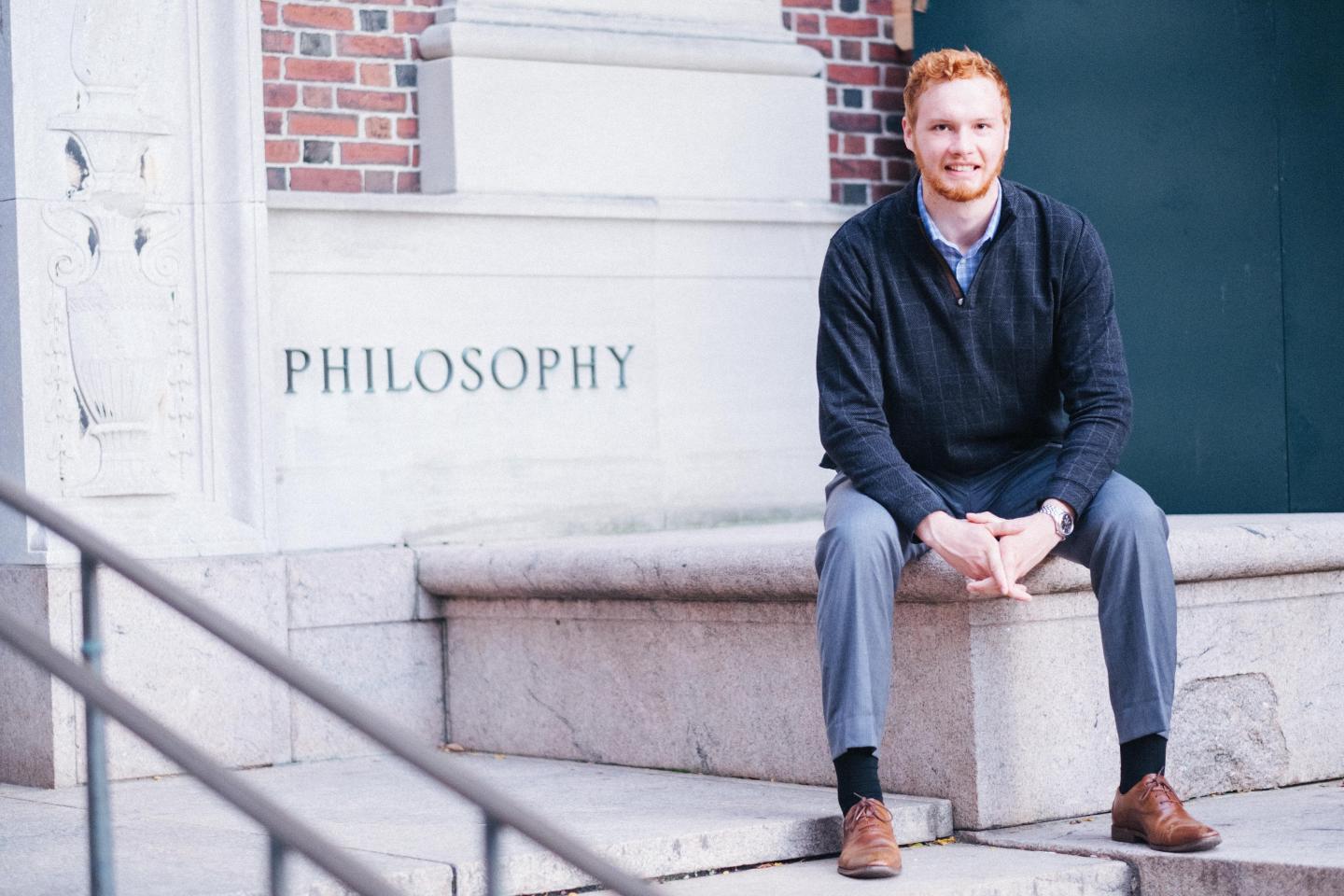Jonathan Tanaka CC’23 Wants Young People to Think Like a Philosopher
Jonathan Tanaka CC’23 has been so energized by his experiences with faculty that his goal is to go into academia, to consider the intersections between mathematical logic and analytical philosophy.

John Jay Scholar Jonathan Tanaka CC’23 wants to teach young people to think more logically.
A dual major in philosophy and math, Tanaka was just a first-year when he founded the nonprofit Logic Made Accessible, which provides a free, online introductory logic curriculum for middle- and high-schoolers. It’s a largely uncharted area of education — philosophy is not regularly taught outside of universities, and can be intimidating for some — but Tanaka believes that students of all ages should have access to concepts of logic that lay the basis for reason and critical thinking.
“My desire for the world is for people to think more critically, more analytically, and be more reflective about what they’re doing,” Tanaka says. “It’s becoming increasingly more important to consider timeless issues like ethics as we go forward into a more technological age.”
Born in Tokyo, Tanaka lived on the Upper East Side until he was 9. After the financial crash in 2008, his family relocated to Kentucky, where Tanaka’s mother is from. His parents enjoyed their new life there so much they bought some land and started a chicken and egg farm.
“I was sad to lose my city friends, but on the farm I did a lot of manual labor, and that’s a good time to think, to let your mind wander,” Tanaka says. “I ended up really liking it, being out in nature more.”
COURTESY OF JONATHAN TANAKA CC’23
When it was time to consider college, Tanaka and his parents knew of Columbia from their earlier years in NYC. He wasn’t sure he would be accepted, but he was considering studying economics, and the idea of being back in the city, with proximity to Wall Street, was appealing.
Tanaka says the variety of financial aid options was the primary reason he applied to Columbia. His parents met at The Wharton School at Penn, so he also applied, and was accepted, there; but the more generous scholarship offered by Columbia swayed him. “As an egg farmer, I was going to need some good financial aid to get [to college]. I’m generally more reserved with my emotions, but when I found out I was awarded a John Jay scholarship I was absolutely ecstatic!”
As an egg farmer, I was going to need some good financial aid to get [to college]. I’m generally more reserved with my emotions, but when I found out I won a John Jay scholarship I was absolutely ecstatic!”
Tanaka says his time at the College has been transformative. He has been particularly inspired by professors like James Eli Adams, who teaches Lit Hum, and Katja Vogt, a professor of philosophy with whom he connected at a John Jay speaker series; Vogt became his advisor and a contributor to Logic Made Accessible. “For a professor to believe in you and invest time in your project is a testament to Columbia — the faculty really believe in undergrads. It’s pretty distinctive.”
In fact, Tanaka has been so energized by his experiences with faculty that his goal is to go into academia, to consider the intersections between mathematical logic and analytical philosophy. “I definitely would want tenure in philosophy at a respectable university,” he says. “And I would love it to be a place like Columbia!”
Tanaka believes that without financial aid, Columbia would suffer from a lack of student diversity. “I think most people don’t have a good sense of what it would be like without financial aid,” he says. “I wish people would understand the gravity of the alternative.”
“I would never have been able to come here otherwise, not even close. These opportunities are priceless, and it just isn’t possible for a lot of people without financial aid.